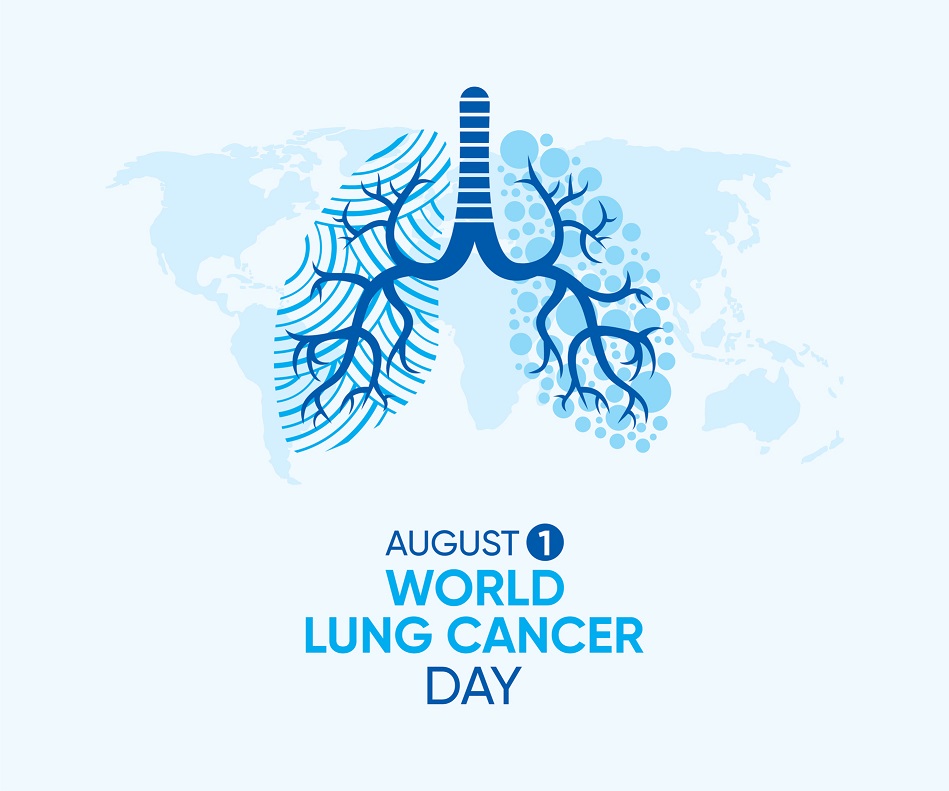
World Lung Cancer Day
Lung cancer is the leading cause of cancer deaths worldwide.
People who smoke have the greatest risk of lung cancer, though lung cancer can also occur in people who have never smoked. The risk of lung cancer increases with the length of time and number of cigarettes you’ve smoked. If you quit smoking, even after smoking for many years, you can significantly reduce your chances of developing lung cancer.
It’s essential that you talk with your doctor about your dental health and visit your dentist before treatment. Your dentist can make sure that your mouth is as healthy as possible before you begin treatment and can provide important information to the rest of your health care team. Together, they can share how treatment may affect your mouth and teeth and confirm if it is safe to get dental care if you have teeth or gum problems.
WHAT TO EXPECT DURING TREATMENT
If you experience any changes in your mouth, be sure to report them to your health care team. During treatment, you may experience the following:
Mouth sores. Radiation treatments and some types of chemotherapy can cause sores inside the mouth and along the lining of the throat and digestive tract. These sores can be a serious problem because they can cause pain and infections, making it difficult to eat, drink and swallow.
Dry mouth. Cancer treatments can cause dry mouth, which damages the salivary glands and can cause dental problems. Saliva protects against infections and cavities while maintaining a balance of bacteria in the mouth. Without enough saliva, the bacteria and other organisms in the mouth can grow too quickly, causing infections and mouth sores.
Sensitive gums. Chemotherapy can cause tenderness, bleeding or inflammation of the gums.
Jaw aches and pains. Radiation near the head and neck can cause jaw pain or stiffness.
Taste changes. During treatment, food may taste differently.
WAYS TO PROTECT YOUR MOUTH DURING TREATMENT
Brush your teeth gently and often. Soaking your tooth brush in warm water can make the bristles softer. If toothpaste irritates your mouth, use a mixture of salt water instead.
Rinse your mouth with water frequently. This can help keep food away from your teeth and gums.
Ice chips or sugar-free popsicles. Suck on ice chips or sugar-free popsicles during chemotherapy. These can ease mouth sores and dry mouth. Chewing on ice chips is really bad for your teeth and gums.
Floss frequently. Gently flossing can help remove plaque between the teeth and prevent cavities.
Avoid mouthwash with alcohol. Alcohol can dry out and further irritate your mouth.
Stay hydrated. Drinking plenty of water can help with dry mouth. Try to avoid fluids that are acidic like orange or cranberry juice.
Eat well. Eating healthy is important during treatment, but may be difficult when experiencing side effects. Avoid adding many spices to your food that may irritate your mouth. Also avoid foods that cause an unpleasant reaction. Try preparing foods that stimulate your sense of taste and are high in protein.
Exercise your jaw. Be sure to exercise your jaw if you get radiation therapy. You can help prevent and ease stiffness in your jaw muscles by opening and closing your mouth as far as you can without feeling pain.
See your dentist throughout treatment. Keep your dentist informed on your diagnosis and treatment.
Mayo Clinic Lung Cancer Cancer Care – Coping With Mouth Sores
Leave a reply →